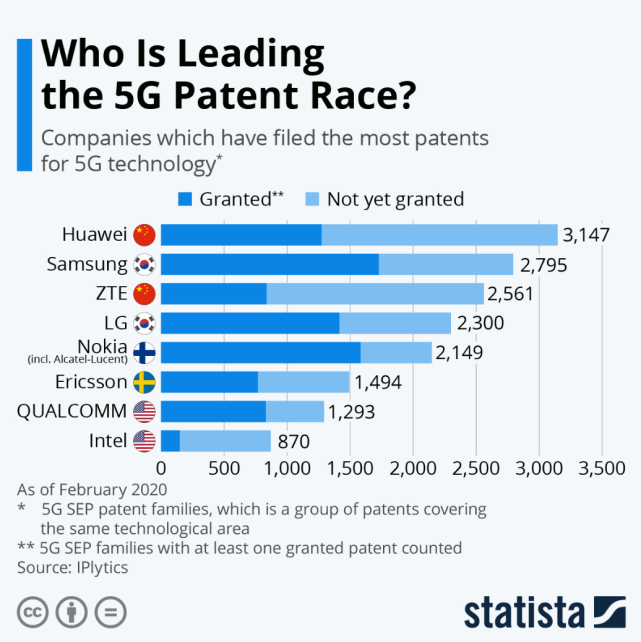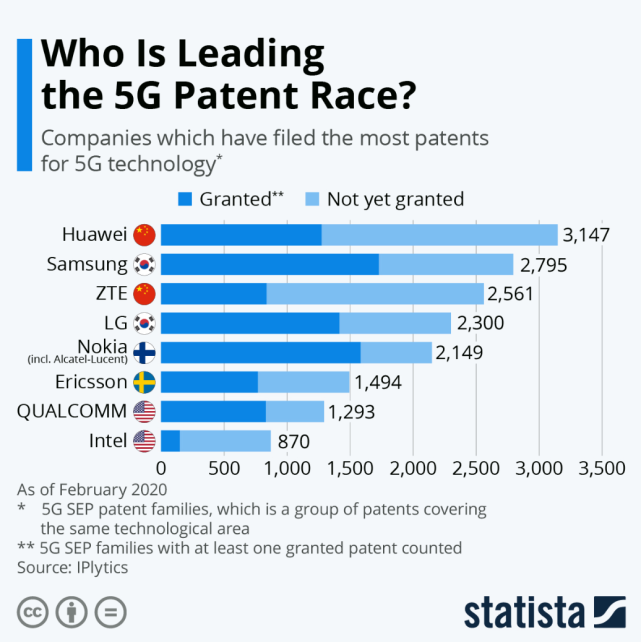Note: This issue of Interconnected Weekly covers the period between June 15-21, 2020, with six news stories – three from English language sources, three from Chinese language sources – hand-picked by your humble author to further our exploration of the interconnections between technology, business, investment, and geopolitics. All translated article titles are done by me; they are not official translations from the media outlets.
“China Reports Progress in Ultra-Secure Satellite Transmission” (English Source: New York Times)
My Thoughts: This story stood out as: 1. Just an impressive technical achievement, applying quantum physics principles to achieve long distance (700 miles) cryptography where encrypted messages can be sent via satellites; and 2. A scientific frontier with national security implications where China appears to have the clear lead over the United States. (The full research is published in Nature.) This technology gives whichever country that masters it the ability to build a fully encrypted satellite network of communications that are less hackable or prone to espionage. The current state of satellites in space, as the article noted, is “rife with jamming, snooping, blinding, spoofing, hacking and hostility among the planet’s growing array of spacecraft and space powers.” The Chinese university driving this search is the University of Science and Technology of China, an affiliate of the national Chinese Academy of Science that has a reputation for being the “Caltech of China”; it is currently not on the U.S. entity list. The corresponding NASA program, National Space Quantum Laboratory, is a classified program, though the expert cited in this article, Dr. Duncan Earl, believes it is at least three years behind its Chinese counterpart.
“Microsoft president swipes at rivals like Apple in urging scrutiny of app stores” (English Source: POLITICO)
My Thoughts: The political will to break up big tech companies in the U.S. is growing. Adding fuel to the fire is, ironically, a Microsoft executive who is no longer in the antitrust crosshair, despite its own monopoly problem in the 90s. Out of the four major antitrust targets: Amazon, Apple, Google/Alphabet, Facebook, there’s a good chance that at least a few of them will be broken up in some way. This trend stands in contrast to the big tech landscape in China, where the dominant players will remain dominant without fear of any antitrust litigation from the government. Another dimension to pay close attention to is how competitive can these American tech companies remain vis-a-vis Chinese tech giants in the global market, if/when they are broken up. Different countries view antitrust in different ways. If the goal is to protect consumer welfare, then breaking up companies that are monopolistic rent-seekers may be a desirable approach. But if the goal is control and stability, then having monopolies are actually easier to control.
“Zynn, the TikTok clone accused of stealing content, was removed from both iOS and Android app stores” (English Source: Business Insider)
My Thoughts: Zynn’s growth strategy (directly paying users to watch short videos on its app) was suspect to begin with, so I’ve been wondering how long its tactic can last. Now that the app is removed from both iOS and Android just a few weeks after it was launched, we have our answer. The official reason is plagiarism, though plenty of people have been concerned about the “pay to watch” and “pay to refer” growth model as a pyramid scheme. Because of Zynn’s Chinese roots (Kuaishou), it has also been under the same scrutiny as its rival TikTok the moment it landed in the U.S. market. When and how Zynn will return to the app store will be interesting to watch. In the meantime, I’ll try to cash out the $2.37 I earned on the app.
“Is the U.S. Giving Up Its Sanctions Against Huawei?” (Chinese Source: Tencent Technology News)
My thoughts: This news item stood out less because of its substance and more because of its tone. Any discussion about Huawei in China takes on a nationalistic tone, which is ironically counterproductive to Huawei’s own repeated denials of being connected to the Chinese central government. This article’s tone, as a reaction to the U.S. Department of Commerce’s announcement allowing U.S. companies to work with Huawei on setting 5G standards, drives home the narrative that Huawei is indispensable no matter how harshly America sanctions it. While a U.S. audience may find this narrative hard to swallow, it is reinforced in China whenever possible as a point of pride. Unfortunately, the article asserted one claim about Huawei’s 5G patent contribution being the most of any company in the world, which is patently false, as indicated by the same graphic it used to make that assertion (see below). Huawei may have filed the most number of patents, but the top three companies with the most number of granted patents go to Samsung, Nokia, and LG respectively. American companies are nowhere near the top.

“How Likely Will Samsung Manufacture 5G Chips for Huawei?” (Chinese Source: InfoQ)
My thoughts: This is an informative article that breaks down the likelihood that Samsung, as the second largest chip manufacturer after TSMC, can assemble a manufacturing line with no American technology to meet Huawei’s needs without violating U.S. sanctions. It’s difficult to pull off because: 1. Three of the top five chip manufacturing equipment companies are American, making up 36.31% of the global market share; and 2. Even if the source of technology isn’t American, if the country of origin is within the American-led sphere of influence, it’ll be pressured not to supply the equipment to any foundry that makes semiconductors for Chinese companies. A case in point is ASML, the Dutch company who holds a near monopoly on the lithography equipment that is required to produce the most advanced 7nm and 5nm chips. In 2018, ASML was supposed to sell this technology to a Chinese customer (rumored to be SMIC), but the order was halted due to pressure from the Trump administration on the Dutch government, a topic I explored in detail in “Chips, Geopolitics, Elections”.
“Colleges and Universities Fall Into Copyright Disputes Again: After MATLAB is Banned, Another Important Software is Restricted for Piracy” (Chinese Source: AI Frontier)
My thoughts: This story has to do with a popular Zhihu thread (China’s Quora) asking about the recent formal request made by the maker of ChemOffice to Chinese universities to stop using counterfeit copies of the software or face legal consequences. The request itself is not remarkable and appears to be nothing more than a company trying to enforce its software’s license. But the Zhihu thread received 600,000+ views (at the time of this writing), because it was wrapped up in the larger story of Chinese universities being no longer allowed to use MATLAB, which is a result of the U.S. sanctions. (For context: ChemOffice is a widely used software suite by chemistry and biology researchers.) The thread which triggered the article underscores a deep fear inside China’s technical community of the pending decoupling with the U.S., combined with a lack of ability to develop sufficient alternatives quickly.
If you like what you've read, please SUBSCRIBE to the Interconnected email list. New posts will be delivered to your inbox (twice per week). Follow and interact with me on: Twitter, LinkedIn.
注:本期《每周互联》总结概括的时间段是:2020年6月15至21日,包括本作者挑选的六条新闻:三条原文是英文,三条原文是中文,来帮助我们继续探索科技、商业、投资和地缘政治之间的相互联系。所有翻译的文章标题都是我做的翻译,不是媒体来源的官方翻译。
“中国宣布极安全卫星传输科技的进展”(英文来源: 纽约时报)
我的想法:这条新闻有意思的地方有两点:1. 本身就是一项非常nb的技术成就,应用量子物理原理实现了远距离(700英里)加密,通过卫星发送加密信息;2. 这是一个具有国家安全意义的科学前沿,目前中国似乎明显领先于美国。(整个研究成果发表在《自然》杂志上。)这项技术使任何一个掌握它的国家都有能力打造一套完全加密的卫星通信网络,从而不易被黑客攻击,也不易被间谍活动破坏。文章里指出,目前太空卫星的状况是“地球上越来越多的航天器和太空强国之间充斥着干扰、窥探、致盲、欺骗、黑客攻击和敌对关系。” 推动这项研究的大学是合肥的中国科学技术大学,中国科学院的附属机构,号称“中国的加州理工”;它目前不在美国实体名单上。相应的NASA项目,国家空间量子实验室,是一个国家保密项目,尽管本文中引用的专家,Duncan Earl博士认为,它至少比中国相应的项目落后三年。
“微软总裁抨击苹果等竞争对手,敦促对App Store进行审查”(英文来源: POLITICO)
我的想法: 拆分美国科技巨头的政治意愿日益增强。蛮讽刺的是,尽管90年代微软自身是拆分的对象,该公司的高管最近的言辞确在为拆分添油加醋。在亚马逊、苹果、谷歌/Alphabet、Facebook这四大反垄断目标中,很有可能至少有几家会以某种方式被拆分。这一趋势与中国的科技巨头格局形成鲜明对比。中国的巨头们会保持统治地位,而不担心政府提起任何反垄断诉讼。另一个需要密切关注的方面是,如果这些美国科技公司被拆分,它们在全球市场上与中国科技巨头的竞争力会不会受影响。不同的国家对反垄断这个问题的看法很不一样。如果目的是保护消费者福利,那么拆分有垄断性行为的公司也许是种可取的做法。但如果目的是控制和稳定,那么有几个垄断性公司其实更容易控制。
“TikTok克隆版Zynn,被指控窃取内容,已从iOS和Android App Store中删除”(英文来源: Business Insider)
我的想法: Zynn的增长战略(直接付钱给用户看短视频)一直被质疑,我也一直在想这种战略能持续多久。现在我们有了答案:app在发布几周后就被iOS和Android Store下架了。官方理由是抄袭,尽管很多人觉得这种“看视频给钱”和“介绍用户给钱”的增长模式是个传销似的金字塔骗局。由于Zynn也是中国公司做的(快手),它在登陆美国市场的那一刻也受到了与竞争对手TikTok同样的关注。Zynn何时和如何重返iOS和Android Store值得关注。等待的同时,我会试着兑现我在Zynn上赚的2.37美元。
“美国要放弃制裁华为了?” (中文来源: 腾讯科技)
我的想法: 这条新闻引起了我的注意,并不是因为它的内容,而是它的语气。任何与华为有关的事情在中国的讨论都带有民族主义色彩。有点讽刺的是,这与华为自己一再否认与中央政府有关系的说法背道而驰。作为对美国商务部宣布允许美国公司与华为合作制定5G标准的回应,这篇文章的语气极想让读者感受到华为是多么不可或缺,无论美国怎么制裁它。虽然美国观众可能会觉得这种说法难以接受,但同样说法在中国确实时时刻刻在被加强,甚至有种自豪感。可惜的是,这篇文章的一个宣称:华为5G专利贡献是世界上最多的公司,显然是错误的,而且是直接被它用来论述这一点的幅图所否认(见下)。华为也许申请的专利最多,但获得最多专利的前三家公司分别是三星、诺基亚和LG。美国公司而是瑶瑶垫底。

“三星为华为代工 5G 芯片有多大可能性?” (中文来源: InfoQ)
我的想法: 这篇文章内容丰富,分析了三星作为仅次于台积电的第二大芯片制造商,在不违反美国制裁的前提下,能否组装一条没有美国技术的生产线以满足华为的需求。这件事难在两点。1. 前五大芯片制造设备公司中有三家是美国公司,占全球市场份额的36.31%;2. 即使技术来源不是美国,如果原产国在美国主导的国际关系影响范围内,它也会受到压力,不向任何为中国公司生产芯片的铸造厂供应设备。一个很好的例子就是荷兰的ASML,它几乎垄断了生产最先进的7nm和5nm芯片所需的光刻设备。2018年,ASML本应将这项技术卖给一家中国客户(传闻是给中芯国际),但由于特朗普政府对荷兰政府施压,订单被叫停,我在“芯片,地缘政治,与大选”这篇文章中也详细探讨了这个话题。
“高校再陷版权纷争:MATLAB遭禁用后,又一基础软件严查盗版” (中文来源: AI前线)
我的想法: 这条新闻是一个知乎帖子引起的。帖子询问ChemOffice制造商最近正式要求中国大学停止使用软件的盗版版本,否则将面临法律后果。这个要求本身没什么特别的,就是一家公司保护自己软件的正当使用许可和知识产权。但帖子目前有60多万人看,因为它被包裹在一个更大的故事里,也就是即中国大学因为受美国制裁而不再允许使用MATLAB。(ChemOffice是化学和生物研究人员广泛使用的软件套件。)一条帖子引发了这篇文章,突显出中国技术界对即将与美国脱钩的深深恐惧,以及缺乏快速开发替代品的能力。
如果您喜欢所读的内容,请用email订阅加入“互联”。每周两次,新的文章将会直接送达您的邮箱。请在Twitter、LinkedIn上给个follow,与我交流互动!
